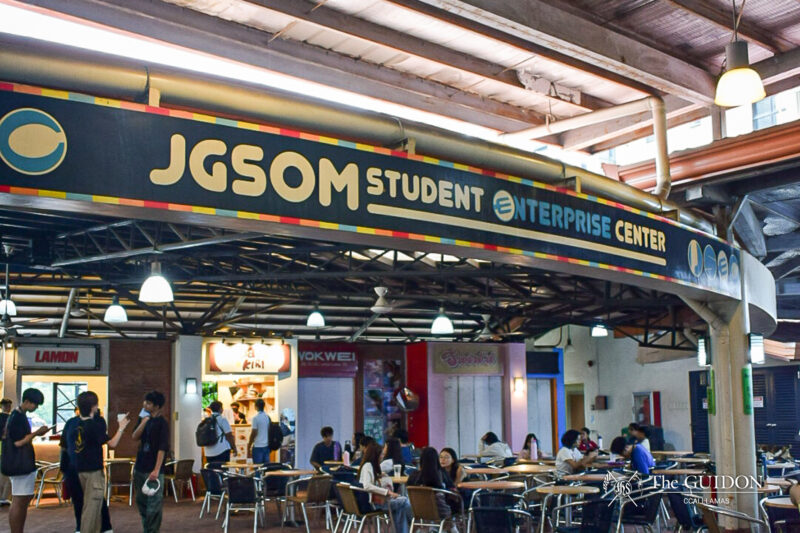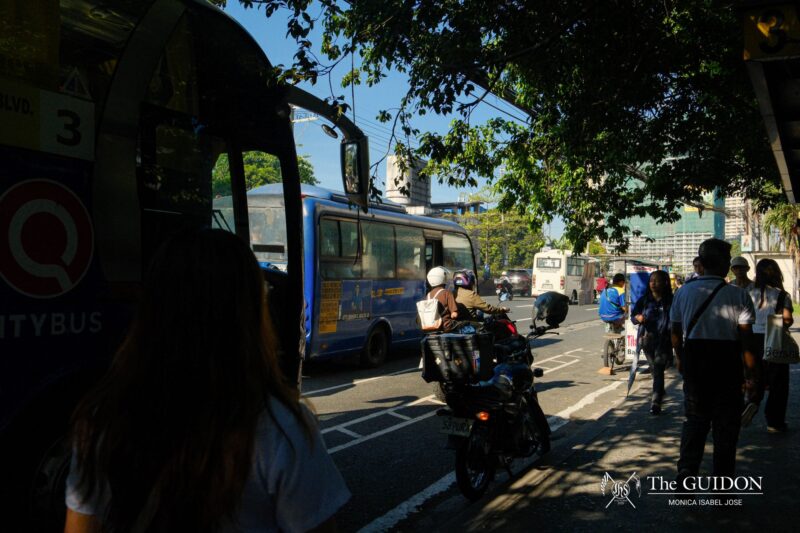IN HOPES of formalizing sectoral reforms and representation within the Sanggunian, Scholars’ Sector Representative Barbie Gayle Ortiz and Council of Organizations of the Ateneo – Manila Representative Kayla Manlapaz proposed Central Assembly (CA) Bill No. 8, titled as Sectoral Reform Bill of 2025.
Notably, the bill aims to promote student rights and ensure equal representation within the student body by institutionalizing various sectoral groups within the University. It also recognizes the needs of emerging sectors by assisting them in the sectoral accreditation process.
According to Sanggunian Vice President Iver John Delos Santos, potential emerging sectors that could benefit from the bill are off-campus dormers, religious minorities, commuters, and persons with disabilities. The bill also mandates for dependent identity-based sector representatives to be elected concurrently with the annual Sanggunian General Elections.
As of writing, the bill has undergone its first panel hearing on March 15. While the second hearing remains pending, Delos Santos expressed optimism for the bill’s approval, noting that it has received a positive consensus among Sanggunian members.
Changing sectoral landscape
With the proposed sectoral reforms, the bill introduces provisions to streamline the accreditation process for emerging sectors. Delos Santos noted that the Sanggunian will be required to provide logistical, financial, and other forms of support to potential sectors.
“[The bill] is about the advocacy of increasing sector representation within the Sanggunian. [We] want to set a process wherein Sanggunian can actually provide support towards the growth of emerging sectors,” he said.
Currently, the bill outlines that the CA will identify prospective identity-based emerging sectors using the criteria of “distinct sectoral identity, need for representation, and sustainability and long-term viability.”
According to its provisions, the Sanggunian Research and Strategy Division will conduct an annual Sectoral Identity Survey to officially recognize an emerging sector, where prospective sectors must earn at least 5% of the votes from the undergraduate population. The Sanggunian Advocacy and Sectoral Division will then help in “internally establishing” the emerging identity-based sectors in preparation for their accreditation.
Notably, emerging coalition-based sectors, which are groups of student organizations that serve as coordinating bodies for their member organizations, can immediately proceed to the accreditation process.
Apart from sectoral recognition, the bill will also formally uphold sectoral rights according to the Magna Carta of Student Rights and the 2019 Constitution of Undergraduate Students of the University, such as the sector’s right to representation in the CA, access to Sanggunian funds, and eligibility to submit project proposals.
Bridging student concerns
Emphasizing the bill’s necessity, League of Independent Organizations (LIONS) Sector Representative Liaa Lim shared that the measure is needed to establish proper mechanisms for organizations dependent on the Sanggunian when seeking the student government’s assistance.
Moreover, Ortiz noted that while many sectors are established on paper, much work remains to institutionalize them in order to address their distinct needs in the coming academic years. Considering these issues, Lim said that the bill seeks to update and respond to the growing needs of various existing and new sectors.
For instance, Ortiz emphasized the need to conduct the Sectoral Representatives Elections simultaneously with the Sanggunian General Elections to help improve voter turnout. Meanwhile, the bill’s inclusion of the “Right to the Recognition as Accredited Organization” addresses LIONS’ concerns about having to pay fees for venue reservation.
Beyond internal matters, Ortiz highlighted the need to strengthen sectoral identity and foster stronger relationships with the University administration.
As such, the bill outlines the Sanggunian’s duties in serving as a liaison between the sectors and administrative bodies. In particular, the bill aims to make the Sanggunian responsible for providing avenues for consultations between sectors and their constituents, as well as increasing the sectors’ visibility.
Understanding community impact
As the bill seeks to promote a more inclusive student government, Lim looks forward to the security it will provide to different sectors. “[It’s] important to make sure that [independent and non-accredited organizations will] always have a voice,” she said.
Alongside improving sectoral presence, Delos Santos hopes the bill will lead to the creation of more sectors. “That’s our main hope for the bill—that once it passes, we provide them avenues so that they can form sectors [and] be more adequately represented […] regarding an issue,” he elaborated.
As the bill moves through the CA’s approval process, Lim is hopeful that it will not only protect the rights of sectors but also amplify the voices of the Ateneo community by championing student diversity.







